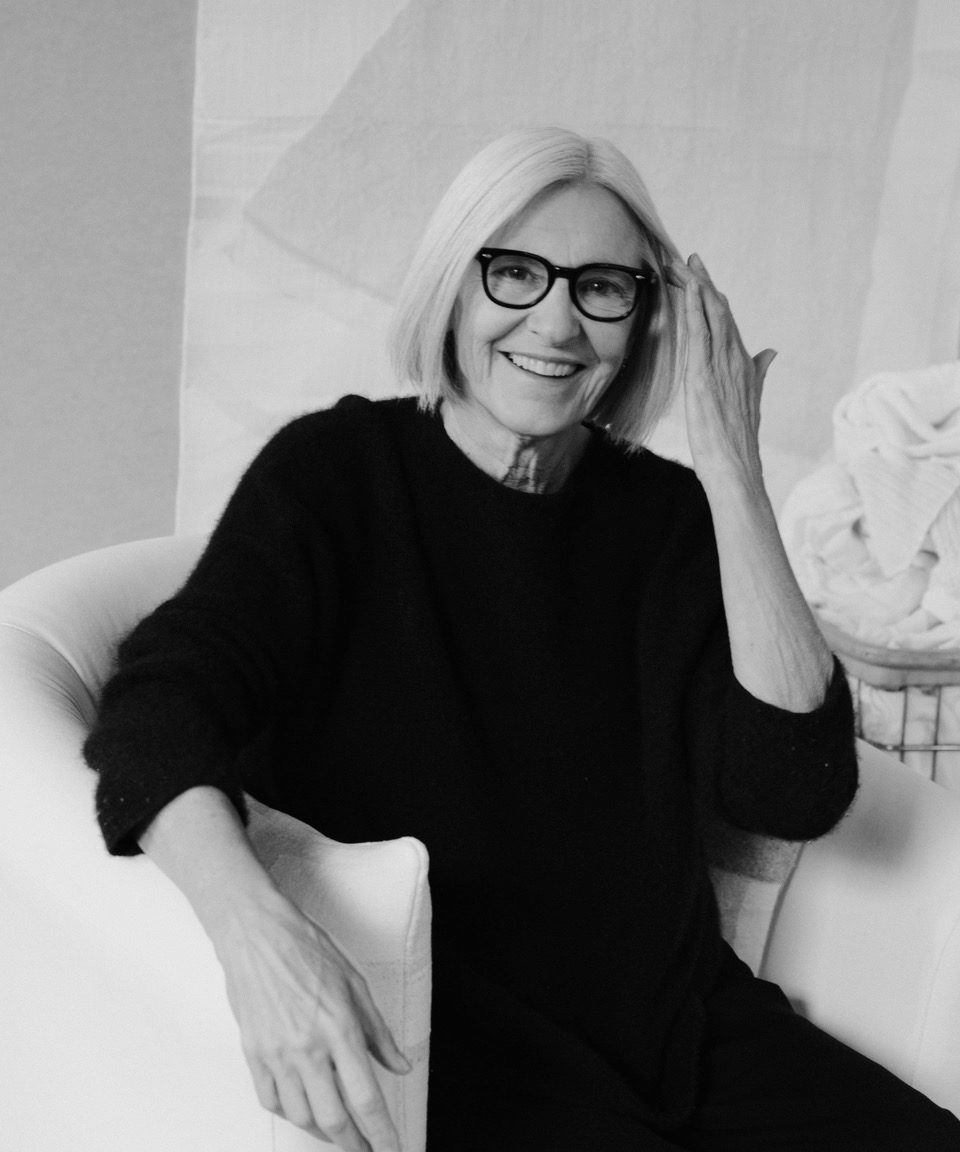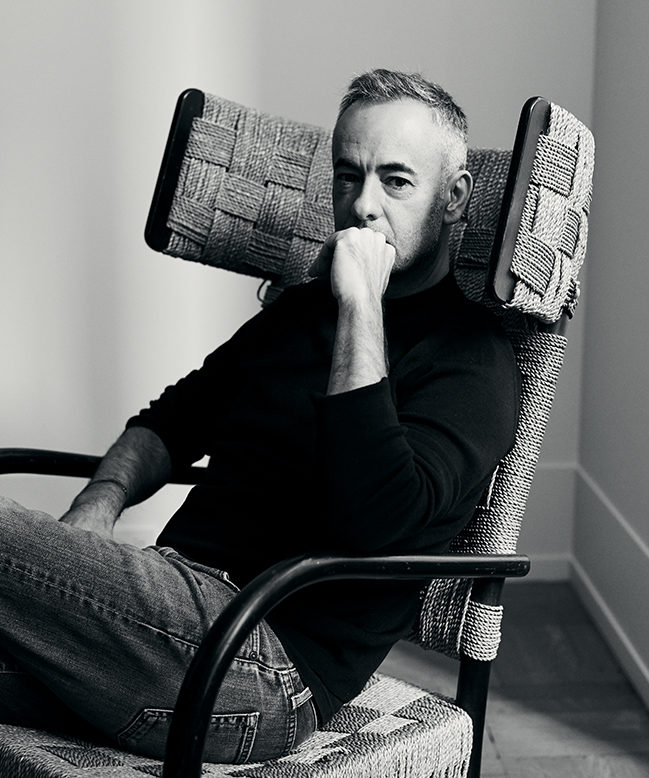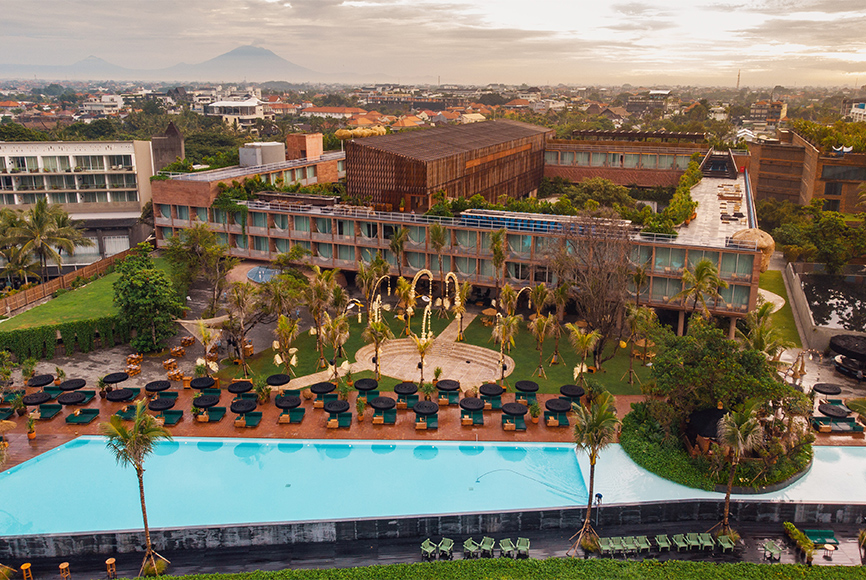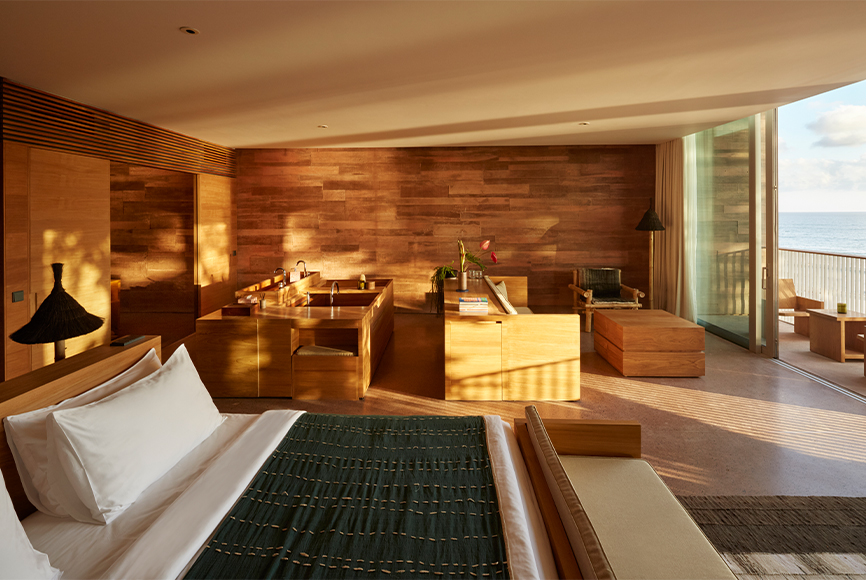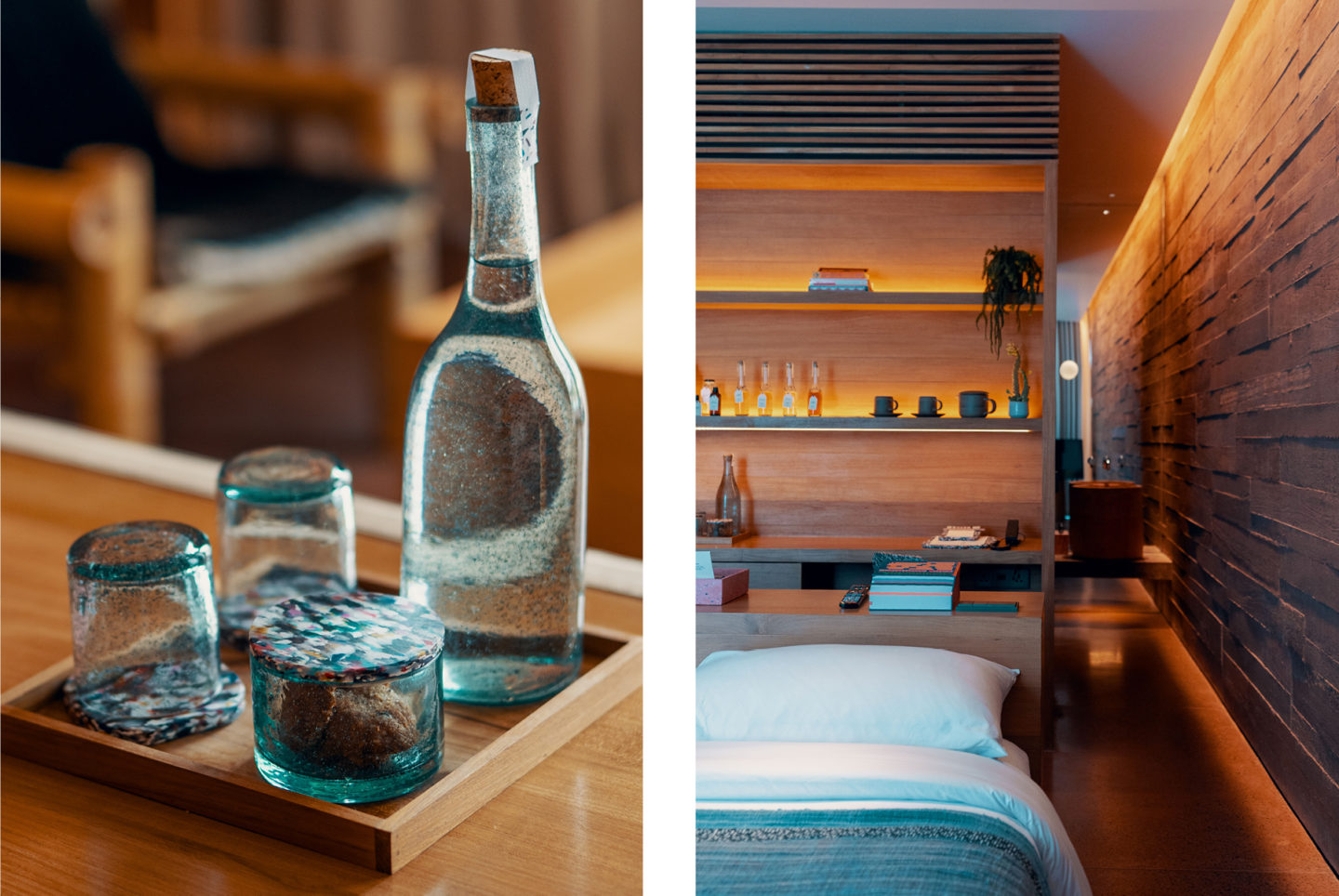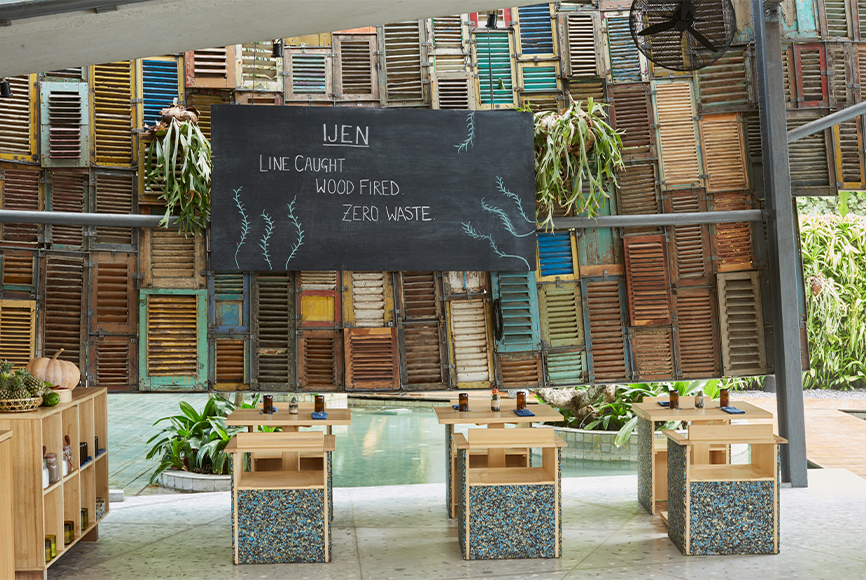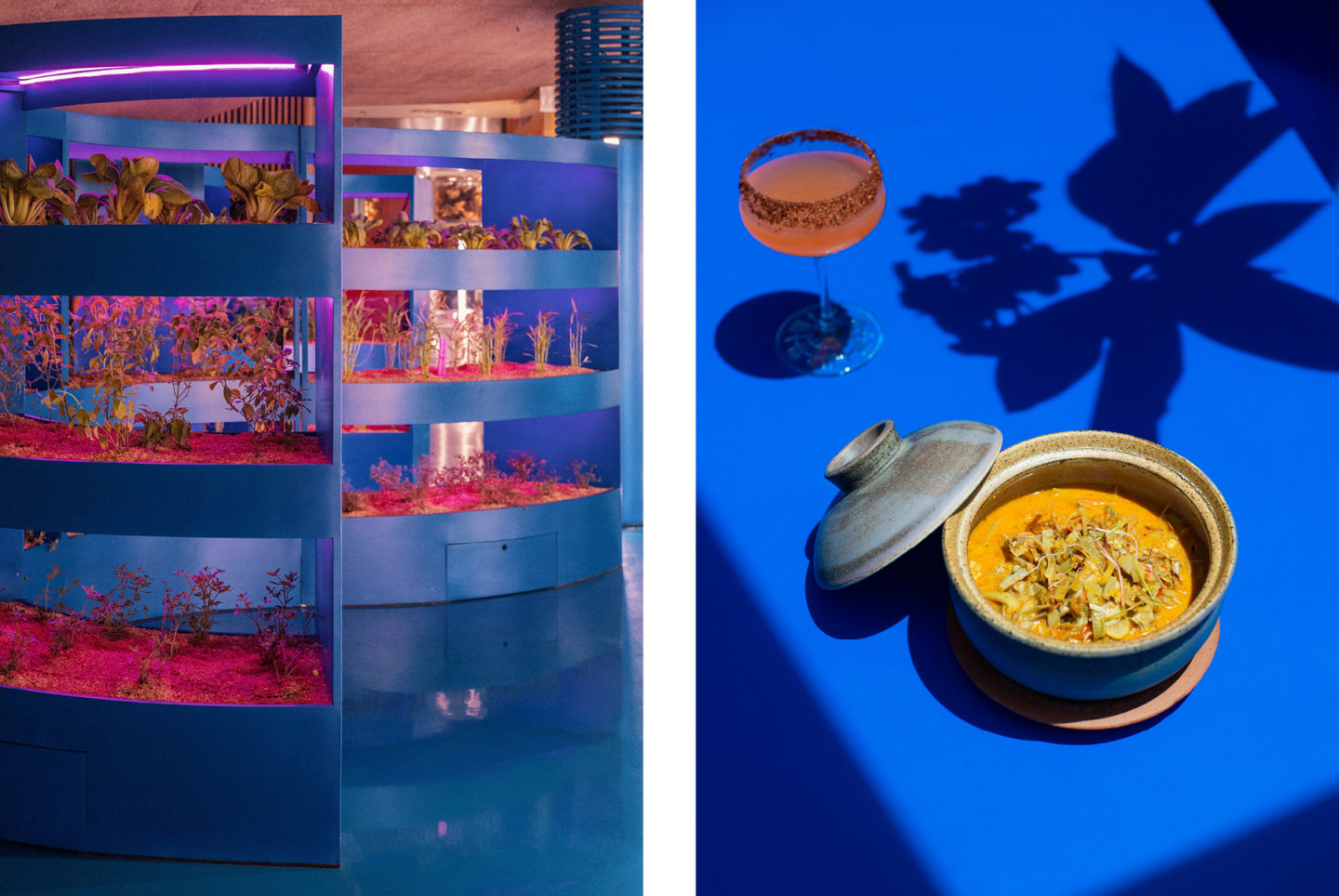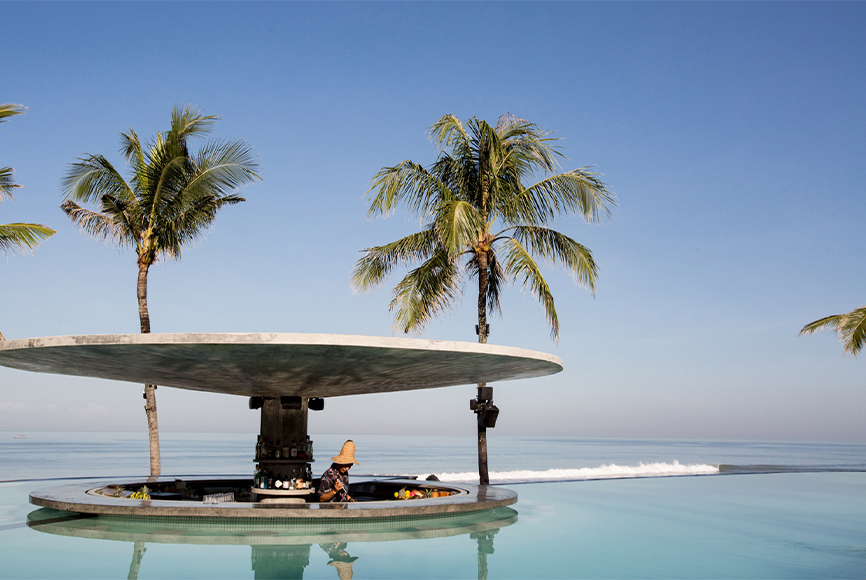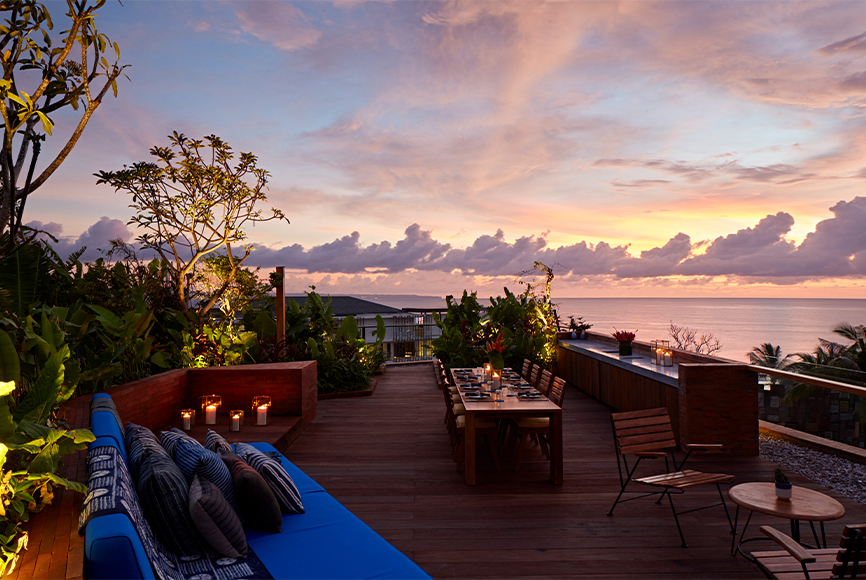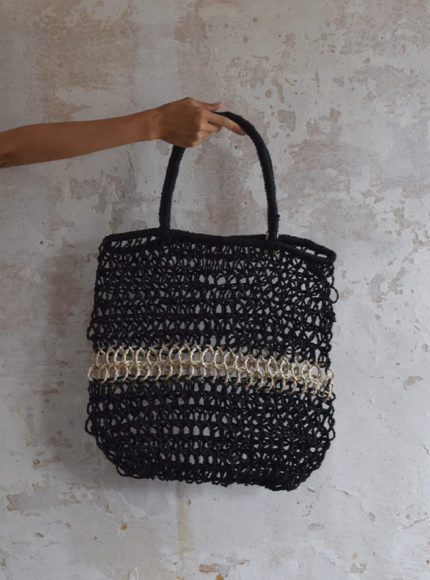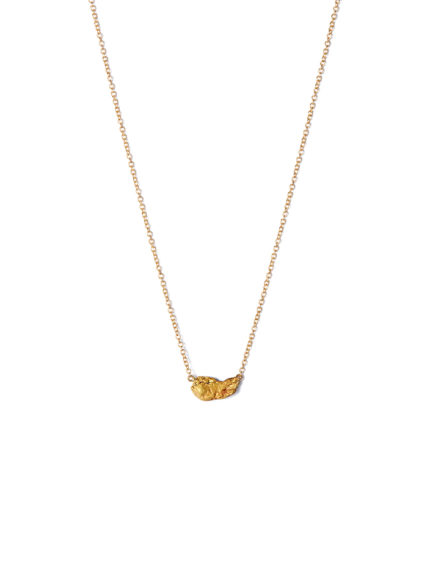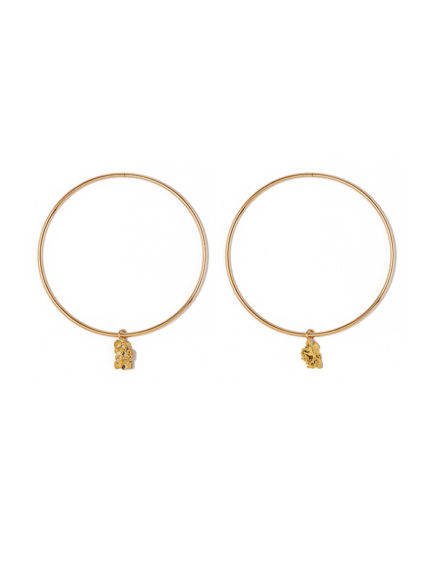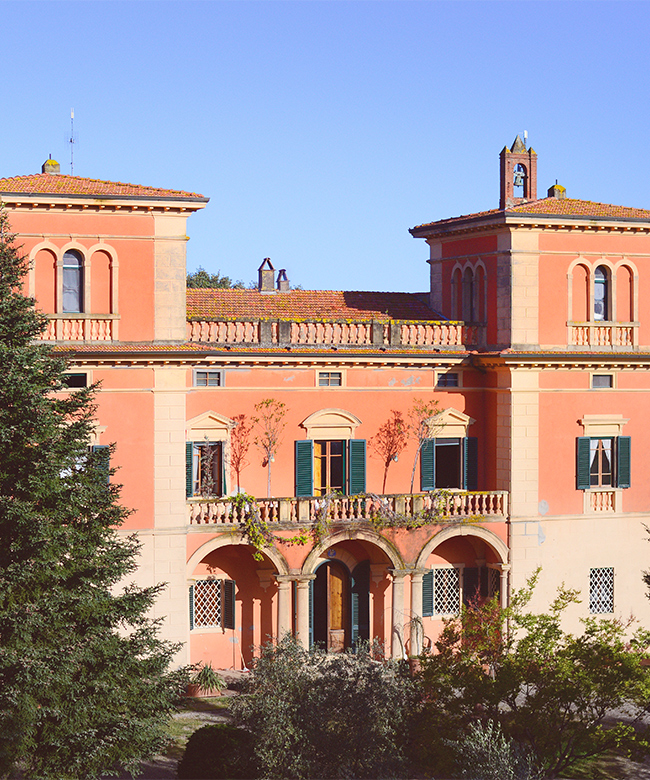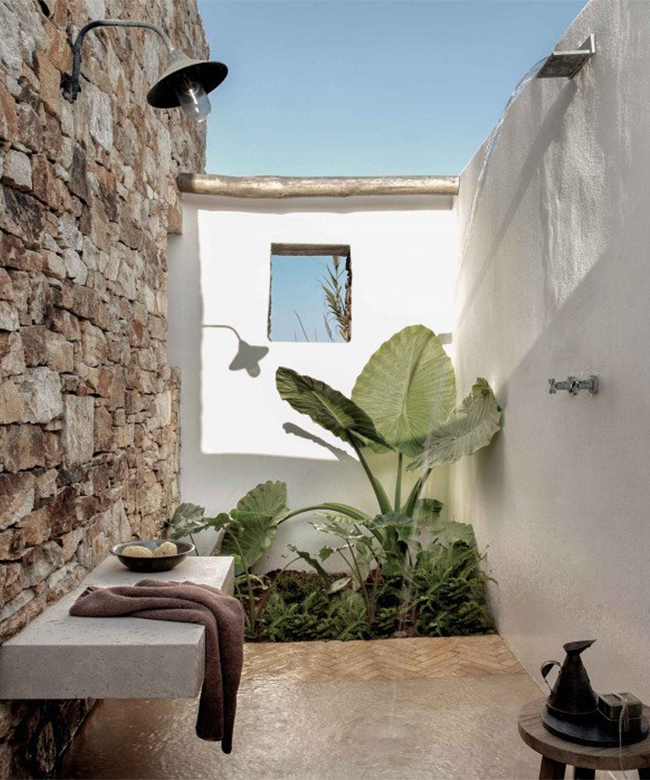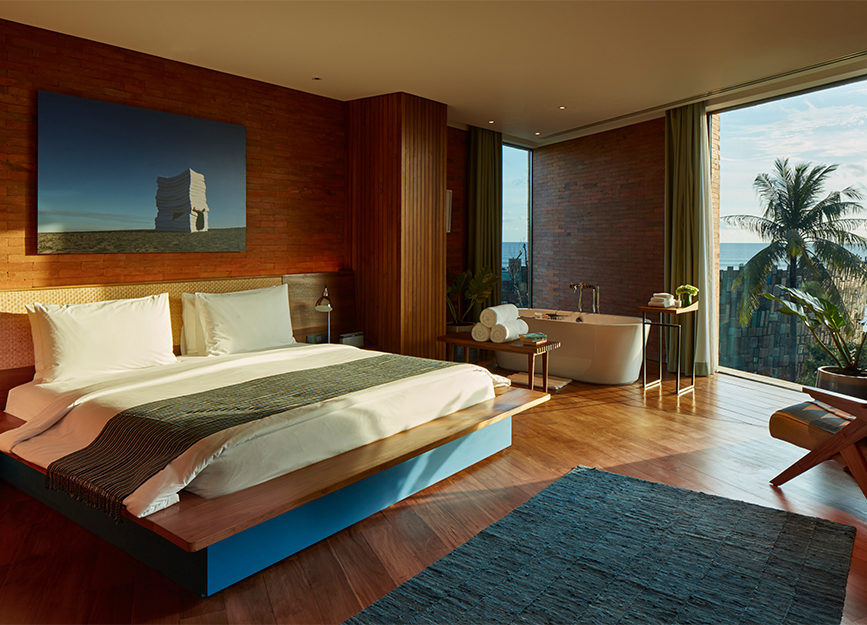
@potatoheadbali
@potatoheadbali
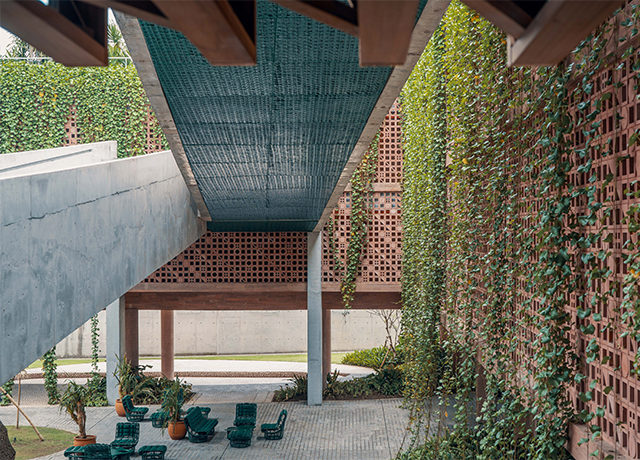

@potatoheadbali
Travel
Our Eco Hotel Series: Potato Head Resort In Bali
We speak to Ronald Akili, founder of Potato Head Resort, based in Seminyak, Bali. Potato Head is a hospitality and lifestyle brand, a vibrant creative hub and pioneer in sustainable innovation. With zero-waste design labs on site, workshops, DJ sets and hydroponically grown food, Potato Head is an eclectic powerhouse of a resort where you will neither ever be bored or uninspired! We are so excited to share this incredible place and hope to inspire anyone to take a visit!
This article brought to you by our friends at Potato Head
“We see regenerative hospitality as the future of hospitality. The idea behind regenerative hospitality is taking on a mindset where tourists, developers and operators are not only taking from the destination but instead, also helping regenerate the destination. It is a shift from mindless pleasure for travel to a sense of fulfillment.”
First of all, can you introduce Potato Head Bali and your mission with it?
Our vision is to be a lifestyle brand that enables people to a better way of living.
We are inspired by this idea of a beautiful, sustainable lifestyle where we make everything so beautiful and it just so happens to be more sustainable.
We believe it’s easier for people to make a change when they don’t have to compromise.
Your motto is “Good Times Do Good” which we love – can you explain how you think doing good can be fun and your own ideology when it comes to that?
In Bali, there’s this idea of life being based in duality. A belief that everything has to be balanced: if there’s black there’s always white. If there’s joy there’s always sorrow, the aim is not to choose but to experience both and find that balance.
Everything we do at Potato Head is based on this, from our design, music, food, wellness. Where there are Good Times, there needs to be balance by Doing Good. In fact, we thinking that good times are made better by doing good. So, we take that upon ourselves to make sure that we’re doing our bit in helping the community, and enacting social and environmental change on the island.
I know the hotel has a whole section on regeneration, can you tell us a bit about what this means and how you work towards that?
We see regenerative hospitality as the future of hospitality. The idea behind regenerative hospitality taking on a mindset where tourists, developers and operators are not only taking from the destination but instead, also helping regenerate the destination. It is a shift from mindless pleasure to a travel for a sense of fulfilment.
We think that is a concept that is essential in building a sustainable future within our industry.
For example, we have just launched our Follow the Waste Tour, which takes guests back of house at Potato Head so they can see our waste management initiatives firsthand and learn more about sustainability. The tour ends with a hands-on workshop, so guests can take the creative ways that we manage waste and bring it to their home cities.
We also invite guests to participate in our community volunteering project. Every Thursday and Sunday, we’ve been taking produce harvested from our Sweet Potato Farm to make servings of nasi bungkus to share with those in need. It’s a way that they can do good on the island while learning more about Indonesian food.
How have you made sure the design of Potato Head was done as sustainably as possible?
I strongly believe sustainability cannot be described by technique, by recycling, or by energy from renewables. The only way something can be described as sustainable is when people understand it, and that it has an impact on the daily behaviour of people. We have never had a discussion about technique but more about philosophy. What we wanted to create is something that belongs and has respect.
From day one, I was convinced that we should shy away from typical architectures of hospitality where everything needs to be crisp, bright, and branded in its materiality. Instead, we wanted to create a materiality that would feel natural, blend in, and that would feel sustainable it itself. I don’t mean the sustainability as we say it today in relationship to environment, but more the sense that people feel that it belongs there.
How do you think creating a connection to the natural world through Potato Head stays can lead to a commitment to sustainability for your guests?
In our modern world, we are removed from experiencing the natural world as it is. Our experience of travel and tourism has become all about the individual, rather than the place as a whole. I think that being reminded about the beauty that exists in the natural world does a lot to repair and nurture the relationship between people and the environment.
At Potato Head, our goal is to inspire guests with memorable, amazing experiences. These experiences happen to be sustainable, without a compromise. We have deep respect for Balinese tradition, and use it as an inspiration to the cultural heritage and craftsmanship of the island. Adding a modern, Potato Head twist allows us to protect the artistry and soul of Bali while being able to meet our visitors where they are on their journey.
This is what regenerative hospitality is about: a new kind of tourism, a way of being in and experiencing a destination that deeply enriches both it and the visitor. It is innovative and inspiring. I feel this needs to be part of Bali’s future so the island and its culture can thrive.
We love that you have your “Sweet Potato Kids” programme – can you tell us a bit about this and how you hope that children can learn about more sustainable habits / appreciation for nature through it?
Sweet Potato Kids introduces a new kind of hotel kids club to the world; educating the younger generation about the importance of sustainability and the future of our planet, in an engaging and kid-friendly way. Activities on offer include bamboo kite making and flying and a coconut planting class. A playground for children meant to inspire future change-makers and hopefully their parents, too.
“In our modern world, we are removed from experiencing the natural world as it is. Our experience of travel and tourism has become all about the individual, rather than the place as a whole. I think that being reminded about the beauty that exists in the natural world does a lot to repair and nurture the relationship between people and the environment.”
Can you tell us a bit about Desa Potato Head especially and its zero waste mission? And from there can you also tell us about the Waste Lab (it’s the new name for Sustainism Lab) within it?
We are on a journey to zero waste to landfill in all our operations. Because there is no real waste management system on the island, most of the waste in Bali ends up in the ocean or in landfill. When we did an audit, we found out that 50% of our waste was going to landfill. Since then, we have created targets and in-house waste management systems that have allowed us to reduce our waste to landfills from 50% to less than 5%, even though we serve around 2,000 people daily. We do this through rigorous waste sorting, banning single-use plastics in the Desa, providing zero-waste kits for guests, working with sustainable producers, and coming up with creative ways to reimagine our waste.
Over the years, our sustainability research and development team at the Waste Lab have worked alongside creatives to give new life to waste repurposing it into beautiful products.
Can you tell us a bit about the regenerative farms you own through Potato Head and their impact on local communities? And how have you incorporated subtly but surely the beauty of plant based eating into it all?
In August 2020, a team of hotel staff volunteered to create two fully functional farms by regenerating empty land. The mission of what was dubbed Sweet Potato Project: to reconnect the Balinese community to their agricultural roots as well as grow local, nutritious produce in a better way using syntropic farming. This system mimics the cycles of nature and brings together plants that inherently support each other; it’s an increasingly popular method of regenerating overdeveloped or degraded land and benefits the community entirely.
In 2021, we harvested 2,306 kilos of vegetables with a portion distributed to Potato Head staff and their families, and the rest cooked into 15K serves of plant-based nasi bungkus, a traditional rice dish wrapped in biodegradable banana leaves. And the numbers went up to almost 6 thousand kilos of harvest in 2022 and 28K serves of nasi bungkus distributed. These are given to the most vulnerable members of Bali’s community, including orphanages and local waste collectors.
At the same time, we have created in Potato Head our experience plant-based dining, Tanaman, a celebration of the vegetable itself: seeing the entire plant –root to fruit– and using culinary techniques to elevate their natural flavours.
Are there any other ways you have looked at sustainability for the hotel that you feel are unique?
The uniqueness of our good times is that they are made better when we do good. Radical sustainability is woven into Potato Head’s DNA, yet we’ve found the magic formula that marries responsibility with raucous revelry, never sacrificing experience along the way.
Our aim is not only to serve up sustainability in an appealing way, but inspire our guests and patrons—even our so-called competition—to adopt this earth-friendly lifestyle by showing how beautifully it can be done without compromise. By designing gorgeous products and experiences, and by being fastidious about sourcing, for example, so that guests can have an incredible today while creating a better tomorrow.
What do you personally look for when you travel elsewhere?
I focus only on meaningful travel, longer and more immersive. Traveling with a purpose not just to get to know the destination, but actually getting to know better the community and with a deeper integration. I don’t really travel for short trips anymore.
Can you give us your top three tips for sustainable, and even better regenerative, travel?
Travel with a purpose of giving or contributing instead of just taking. If travellers have that mindset, from my experience that trip become much more meaningful and memorable. Don’t leave behind a bad trail, embrace the destination and leave something beautiful behind as a ‘thank you’.
Finally, what is the element of Potato Head Bali that you are most proud of when it comes to efforts around creating a more sustainable way of existence?
I get so much joy from being able to serve around 2,000 people daily while continuously making headway in our journey to nothing. We’ve been able to reduce our waste to landfills from 50% in 2016 to less than 5% today, be the first carbon-neutral hospitality company in Southeast Asia, partner with the United Nations, and open the first zero-waste restaurant in Indonesia– which is much more than I could ever expect to achieve when we decided to take this path!
Words by Ronald Akili, founder of Potato Head
Follow Potato Head Resort @potatoheadbali














